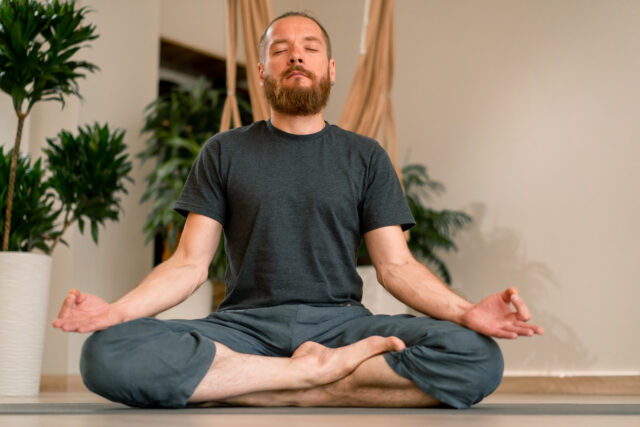Few things are more frustrating than waking up in the dead of night, staring at the ceiling, and wondering if you’ll ever fall back asleep.

Whether it’s stress, random dreams, or your brain deciding it’s time to review every embarrassing thing you’ve ever done, 3 a.m. wake-ups can easily spiral into full-blown insomnia if you’re not careful. The good news? There are ways to ease yourself back into rest without turning it into a battle. Here are some straightforward ways to help you reclaim a restful night, even after an annoying middle-of-the-night wake-up call.
1. Keep the lights low and avoid screens.

As tempting as it is to scroll your phone or flick on a light to “do something,” it sends the wrong signals to your brain. Bright light tells your body it’s morning, making it much harder to slip back into sleep mode. Instead, keep the lights dim if you need to get up (like for the bathroom), and resist the urge to open your phone. Gentle darkness helps maintain your natural melatonin levels and keeps your body primed for rest.
2. Try a simple breathing exercise.

When you wake up at 3 a.m., your nervous system can easily tip into “alert mode.” One of the quickest ways to calm it down is through slow, focused breathing, like inhaling for four counts, exhaling for six. Focusing on your breath not only calms your heart rate but also gives your mind something gentle to do instead of spiralling through anxious thoughts. It’s a small, quiet reset that works surprisingly well.
3. Resist checking the clock.

Clock-watching is one of the fastest ways to make things worse. Seeing the time only fuels anxiety about “how much sleep you’re losing” and how awful you’ll feel tomorrow—a cycle that keeps you wide awake. Try turning your clock away from you before bed or covering it with a shirt. No good has ever come from calculating how many hours you have left while half-asleep in the middle of the night.
4. Get out of bed if you’re awake for more than 20 minutes.

If you find yourself tossing and turning endlessly, it can help to get up, but the key is to keep things boring. Go sit somewhere dim and do something quiet, such as reading a physical book (nothing too gripping) or stretching lightly. Staying in bed while fully awake creates a mental link between your bed and wakefulness. Breaking that association can make it much easier to fall asleep once you crawl back under the covers.
5. Avoid replaying stressful thoughts.

What’s weird is that 3 a.m. has a sneaky way of making problems feel bigger than they are. If your brain starts replaying worries, try gently redirecting it without getting frustrated at yourself. Some people find it helpful to have a “default thought” ready—something neutral and calming, like imagining walking through a forest or recalling a favourite memory, to gently refocus the mind without forcing it.
6. Try progressive muscle relaxation.

This simple technique involves slowly tensing and relaxing each muscle group in your body, starting from your toes and working up to your head. It eases physical tension and gives your mind something methodical to focus on. By the time you reach your shoulders, you might find your eyelids getting heavy again without even realising it. It’s a classic for a reason: it pulls your focus away from thinking and back into feeling restful.
7. Keep your environment cool and comfortable.

Middle-of-the-night wake-ups can sometimes happen because you’re too hot, too cold, or just a little uncomfortable without realising it. Take a second to adjust your blanket, open a window slightly, or kick one leg out if needed. Even small tweaks to your sleeping environment can help your body settle back into a relaxed state, making it easier for sleep to come naturally again instead of feeling like a wrestling match.
8. Use a calm, repetitive mental mantra.

Something simple like “I am safe” or “Rest is enough” can help nudge your mind into a more relaxed, sleepy state. Repeat it slowly and calmly in your head like a background hum. It’s not about forcing yourself to believe anything dramatic; it’s about giving your brain something gentle and soothing to latch onto instead of spiralling down rabbit holes of worry.
9. Stay patient, even if you’re frustrated.

The moment you start getting angry about being awake, you make it ten times harder to fall back asleep. Sleep is like a cat—the more you chase it, the faster it runs away. Try treating yourself with the same patience you’d offer a stressed friend. Even lying quietly and resting your body without actual sleep has restorative value, and approaching it calmly usually invites sleep back sooner than fighting it does.
10. Sip a little water if you’re thirsty, but don’t overdo it.

Sometimes waking up is your body’s way of signalling a need, like slight dehydration. A small sip of water can help without fully waking you up the way a full glass might. Avoid drinking too much, though—you don’t want to trade sleeplessness for a second wake-up call at 5 a.m. when nature inevitably calls again.
11. Use calming scents if they help you.

Some people find that certain scents like lavender, chamomile, or sandalwood naturally promote relaxation. Keeping a little rollerball essential oil on your bedside cabinet can be a gentle tool for middle-of-the-night wake-ups. A quick whiff or two can cue your brain into a calmer state without needing to turn on lights or move around too much. It’s not a magic fix, but it can definitely help set the mood for sleep to return naturally.
12. Remind yourself that one rough night isn’t the end of the world.

It’s easy to catastrophise after a middle-of-the-night wake-up, convincing yourself tomorrow will be a disaster and that your week is ruined. But missing a little sleep every now and then, while annoying, isn’t the end of everything. You’ll survive a groggy day. Your body will catch up naturally. Sometimes, just removing that layer of panic about “needing” to sleep can ironically help you relax enough to drift off again.




